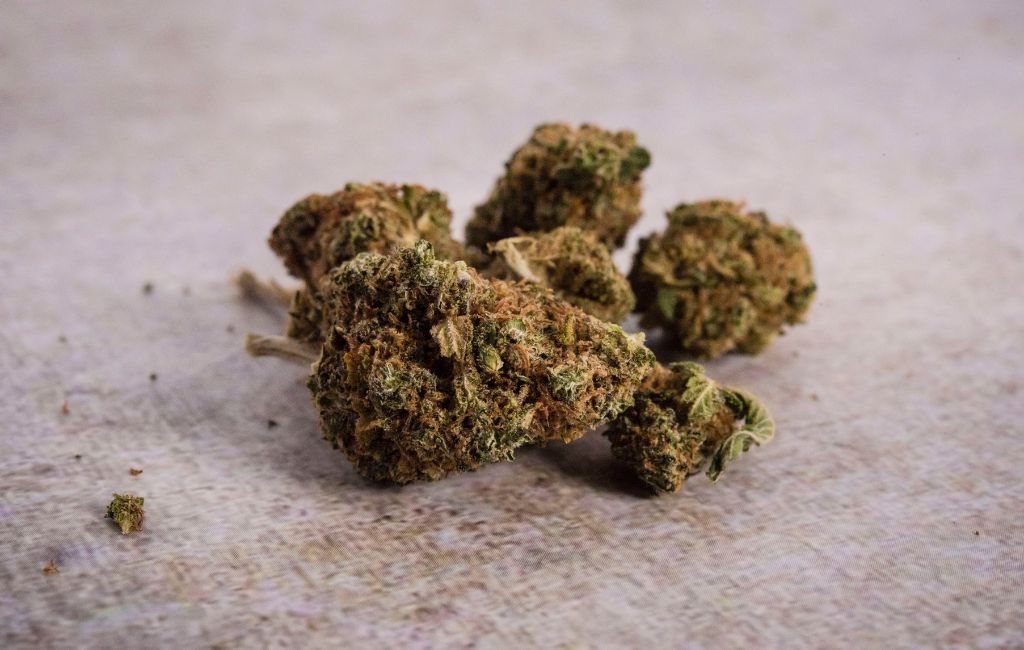
THCa Flower: Holistic Healing
Taking Care Of Stress with Natural Treatments: The Role of THCA
Introduction
In today’s fast-paced world, stress has become an unwelcome companion for many. Whether it’s the pressures of work, family dynamics, or unexpected life challenges, stress can take a significant toll on our mental and physical well-being. Thankfully, nature offers us some remarkable remedies to alleviate this burden. Among these natural solutions is THCA, or tetrahydrocannabinolic acid, a compound found in cannabis plants that is garnering attention for its potential therapeutic benefits.
This article aims to explore how managing stress with natural remedies like THCA can provide relief without the adverse effects commonly associated with pharmaceuticals. We’ll delve into what THCA is, its benefits and side effects, appropriate dosages, and practical ways to incorporate it into your daily routine. By the end of this piece, you’ll have a comprehensive understanding of using THCA as a natural remedy for stress management.
What is THCA?
Understanding what THCA is crucial if we’re going to explore its role in managing stress. THCA, or tetrahydrocannabinolic acid, is a non-psychoactive cannabinoid found in raw cannabis plants. Unlike its more famous counterpart THC (tetrahydrocannabinol), which produces psychoactive effects when heated (or decarboxylated), THCA remains largely inactive until it undergoes this process.
The Chemistry Behind THCA
THCA’s chemical structure is similar to THC but features an additional carboxylic acid group. This structural difference makes it non-intoxicating; hence users can experience its potential benefits without the “high.” When heated through methods such as smoking or cooking, THCA transforms into THC, which then exerts psychoactive effects.
How Does THCA Work in the Body?
The human body contains an endocannabinoid system (ECS), which plays a crucial role in regulating various physiological processes such as mood, appetite, sleep, and pain sensation. Cannabinoids like THCA interact with the ECS by binding to CB1 and CB2 receptors. While research on THCA is still in its early stages compared to THC and CBD (cannabidiol), preliminary studies suggest that it may offer several health benefits.
THCA Flower: A Natural Choice for Stress Relief
THCA flower refers to the raw flowers of cannabis plants containing high levels of THCA. It’s often consumed in various forms—juicing, tinctures, or simply eating raw cannabis leaves—to harness what does a nic high feel like its therapeutic properties without psychoactivity.
Why Choose THCA Flower?
A Practical Guide to Using THCA Flower
- Juicing Raw Cannabis: Blend fresh cannabis leaves with fruits and vegetables for a nutrient-packed drink.
- Making Tinctures: Soak raw cannabis flowers in alcohol to extract cannabinoids.
- Incorporation into Meals: Add finely chopped raw cannabis leaves into salads or sandwiches for an extra boost.
THCA Benefits: A Natural Approach to Stress Management
Understanding the potential benefits of using THCA can be empowering when seeking natural remedies for stress relief.
Potential Therapeutic Effects of THCA
Anti-inflammatory Properties: Early research suggests that THCA may help reduce inflammation throughout the body.
Neuroprotective Effects: Some studies indicate that it could protect brain cells from damage caused by oxidative stress.
Anxiolytic Effects: Anecdotal evidence supports claims that consuming raw cannabis helps reduce anxiety levels.
Nausea Relief: It may also aid individuals struggling with nausea—common during stressful times or medical treatments.
Exploring the Side Effects of THCA
While many look towards natural remedies like THCA as a solution for managing stress, it’s equally important to consider any potential side effects.
Common Side Effects Associated with THCA Use
Gastrointestinal Discomfort: Some users report mild stomach upset after consumption.
Mild Drowsiness: Although not intoxicating like THC, high doses might lead to feelings of fatigue or lightheadedness.
Interference with Medications: As with any supplement, consulting healthcare providers before starting dosage is vital for those on medication.
Is There Anyone Who Should Avoid Using THCA?
Individuals who are pregnant or breastfeeding should consult healthcare professionals before using any cannabinoid products due to limited research on safety during these periods.
Finding the Right Dosage: How Much THCA Should You Take?
Determining an appropriate dosage of any supplement can be tricky—THCA is no exception.
General Guidelines for THCA Dosage
- Start Low: Beginners should start with lower doses (around 5-10 mg) and gradually increase based on their body’s response.
- Monitor Your Body’s Response: Keep track of how you feel after taking different doses; adjust accordingly.
- Consult Healthcare Professionals: Always good practice before starting new supplements!
Factors Influencing Individual Dosage Needs
Managing Stress with Natural Remedies: The Role of THCA
With increasing awareness surrounding mental health issues such as anxiety and depression, more individuals are turning towards natural alternatives like herbs and cannabinoids for support—this leads us back to our star player today—THCA!
Imagine winding down after a long day at work; you decide instead of reaching out for that glass of wine or over-the-counter pill; you opt for some fresh cannabis juice instead! Not only do you get nutrients packed into your system but also potentially improve your mood—all thanks to this incredible compound!
By incorporating natural remedies like THC-A into our routines coupled with healthy lifestyle choices – such as exercise and mindfulness practices – we create a holistic approach toward tackling everyday stresses effectively!
FAQs about Managing Stress with Natural Remedies: The Role of THCA
1. What are common uses for thca?
THA is primarily used as an anti-inflammatory agent and may help alleviate symptoms related to anxiety and nausea while promoting overall wellness without causing intoxication.
2. Is thca legal?
The legality varies depending on local laws regarding cannabis use; however, many places allow raw forms due to their non-intoxicating nature.
3. Can I use thca alongside other medications?
It’s essential first check with your healthcare provider since mixing different substances might lead unexpected interactions!
4. How quickly will I feel thca’s effects?
Since thca must be converted via heat before becoming psychoactive—which means results might take longer than traditional medicinal options!
5. Are there specific strains known for high levels of thca?
Yes! Strains like “Cannatonic” and “ACDC” are famous among those seeking higher levels while avoiding psychoactivity entirely!
6. How do I store thca flower?
Keep your thca flower stored away from light & moisture; airtight containers work best!
Conclusion
As we conclude our exploration into managing stress through natural remedies like THC-A, it becomes increasingly evident that integrating such solutions offers hope amidst life’s chaos! While ongoing research continues unveiling further insights surrounding cannabinoids’ therapeutic potentials—individual experiences remain invaluable too!
As always though remember moderation matters when introducing anything new into one’s health regimen—including something seemingly benign like thc-a! So whether you choose juicing fresh cannabis leaves top salads—or venturing deeper down this rabbit hole exploring tinctures & oils—the journey towards better wellness awaits!
So let’s embrace nature’s gifts while navigating our paths toward tranquility together!
THCa Flower for Holistic Healing
In recent years, the interest in natural and holistic healing methods has surged. Among the various options available, THCa flower has emerged as a promising candidate for those seeking alternative health solutions. This article explores the benefits, uses, and scientific backing of THCa flower in holistic healing.
Understanding THCa
THCa, or tetrahydrocannabinolic acid, is a non-psychoactive cannabinoid found in raw and live cannabis plants. Unlike THC, THCa does not produce a “high” when consumed. Instead, it offers a range of potential health benefits that are gaining attention in the medical community.
How THCa Differs from THC
THCa and THC are chemically similar but differ in their effects on the human body. THCa is the precursor to THC. When cannabis is heated through smoking, vaping, or cooking, THCa converts to THC, which is psychoactive. Consuming raw THCa does not produce the same psychoactive effects, making it an attractive option for those who want the therapeutic benefits without the high.
Health Benefits of THCa Flower
Research and anecdotal evidence suggest that THCa offers several health benefits. Here are some of the most notable:
- Anti-inflammatory Properties: THCa has shown promise in reducing inflammation, which can be beneficial for conditions like arthritis and autoimmune diseases.
- Neuroprotective Effects: Studies indicate that THCa may help protect brain cells, potentially offering benefits for neurodegenerative diseases such as Alzheimer’s and Parkinson’s.
- Anti-emetic Effects: THCa may help reduce nausea and vomiting, making it useful for patients undergoing chemotherapy or those with chronic gastrointestinal issues.
- Antioxidant Properties: THCa acts as an antioxidant, helping to neutralize harmful free radicals in the body.
Scientific Studies Supporting THCa
Several studies have explored the potential benefits of THCa. For instance, a 2013 study published in the “British Journal of Pharmacology” found that THCa exhibited anti-inflammatory properties in animal models. Another study in 2017 highlighted its neuroprotective effects, suggesting that THCa could be beneficial for neurodegenerative conditions.
Case Studies
Real-world examples further illustrate the potential of THCa. One case involved a patient with severe arthritis who experienced significant pain relief and improved mobility after incorporating THCa into their treatment regimen. Another case highlighted a cancer patient who found relief from chemotherapy-induced nausea through THCa consumption.
Methods of Consumption
There are various ways to consume THCa flower, each offering different benefits:
- Raw Consumption: Eating raw cannabis leaves or flowers in salads or smoothies preserves the THCa content.
- Juicing: Juicing raw cannabis is another effective way to consume THCa without converting it to THC.
- Tinctures and Oils: These can be made from raw cannabis and offer a convenient way to dose THCa.
Legal Considerations
The legal status of THCa varies by region. In some places, raw cannabis is legal for medical or recreational use, while in others, it remains restricted. It’s important to be aware of local laws and regulations when considering THCa for holistic healing.
Potential Side Effects
While THCa is generally considered safe, some individuals may experience side effects. These can include mild gastrointestinal discomfort or allergic reactions. Consulting with a healthcare provider before starting any new treatment is advisable.
Conclusion
THCa flower offers a promising avenue for holistic healing, with potential benefits ranging from anti-inflammatory and neuroprotective effects to anti-emetic and antioxidant properties. Supported by scientific studies and real-world case examples, THCa is gaining recognition as a valuable component of natural health regimens. As interest in holistic healing continues to grow, THCa flower stands out as a compelling option for those seeking alternative health solutions.
